Met Police cracks down on pro-Palestinian protest as they use powers to prevent major gathering
The Metropolitan Police have imposed Public Order Act conditions to prevent a pro-Palestine protest from gathering near a central London synagogue next week.
The Palestine Solidarity Campaign (PSC) had planned to assemble outside BBC Broadcasting House in Portland Place on Saturday, January 18, before marching to Whitehall.
Police acted on Thursday evening to block the rally from gathering in the area, citing risks of “serious disruption” to a nearby synagogue during Shabbat services.
The decision came after extensive discussions with protest organisers, who had refused to alter their planned starting point despite police requests. The PSC had targeted the BBC over what they described as “pro-Israel bias” in its Gaza coverage.
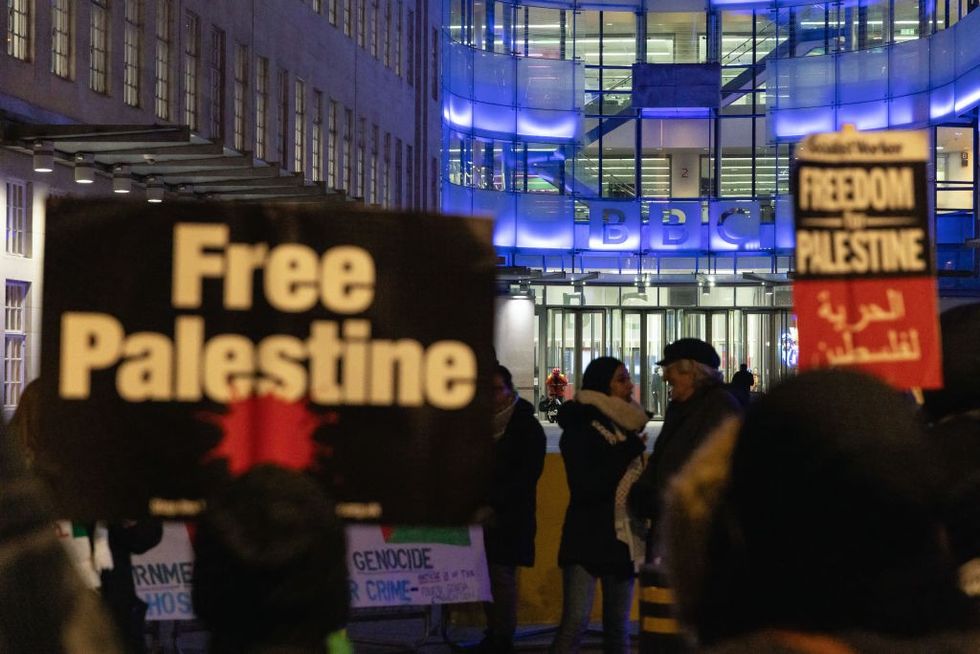
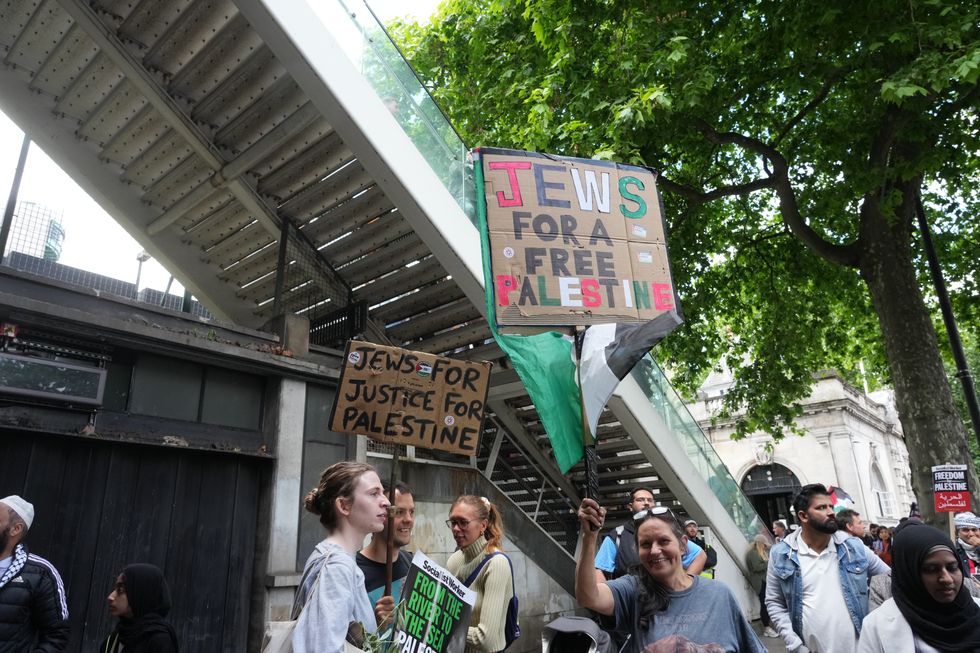
The Met expressed concerns about the protest’s proximity to Central Synagogue, located just three minutes from Broadcasting House. Police officials noted the “cumulative impact” of prolonged protests, often occurring on Saturdays near synagogues.
“We know this has been a cause of increased concern for many Jewish Londoners who have altered their plans, avoided parts of central London and reduced attendance at religious services,” the Met said.
The PSC claimed the route had been agreed with police nearly two months ago and they were only informed of the change on Wednesday. Commander Adam Slonecki, who is leading the policing operation, emphasised the force’s duty to balance protest rights with community impact.
“It is not our role to give permission for protests, but we can use our powers under the Public Order Act to apply conditions,” he said. The commander noted that since October 2023, these powers have been used “more occasions than at any other point in recent history.”
LATEST FROM THE GAZA-ISRAEL CONFLICT
- MPs demand Met Police BANS pro-Palestine protest for starting near synagogue
- Hamas refuses to say if British hostage set for release is STILL ALIVE months after being kidnapped
- Jewish artists ‘frozen out of UK cultural life’ for refusing to label Israel’s actions as ‘genocide’
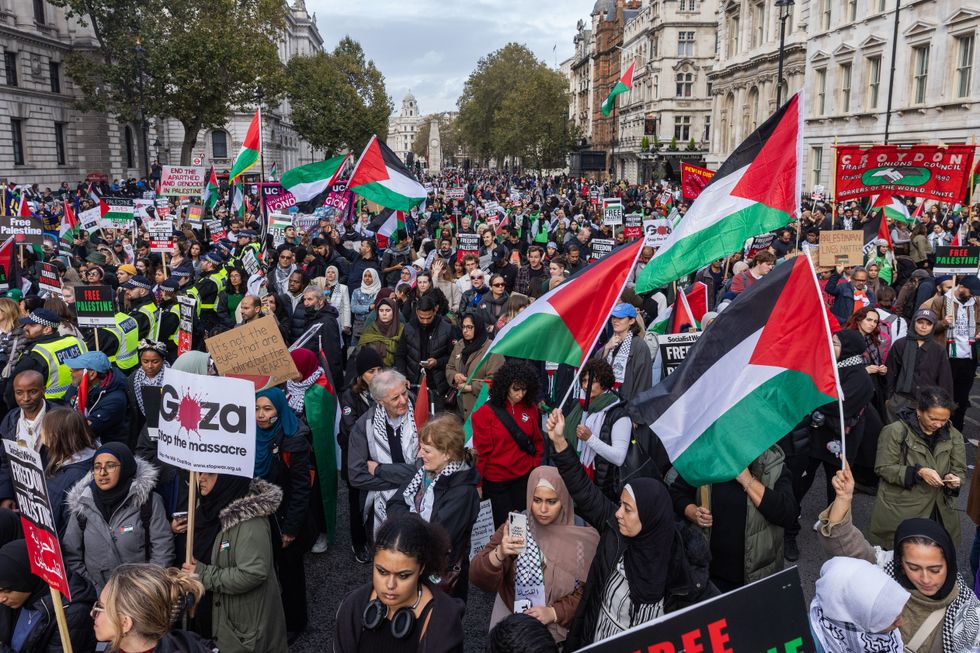
In response to the police action, the PSC “utterly condemned” what they called an attempt to use “repressive powers” to prevent their planned protest. The group rejected suggestions their marches posed any threat to Jewish people.
“The Met Police have acknowledged there has not been a single incident of any threat to a synagogue attached to any of the marches,” the PSC said. The campaign group argued that “the closest synagogue to the BBC is not even on the route of the march.”
They added that Jewish members sympathetic to their cause had written to police “seeking a meeting to express their concerns that the police are choosing to listen solely to pro-Israel Jewish voices.”
A spokesman from the PSC added: “We firmly reject any attempt to suppress our right to campaign for an end to Israel’s genocidal violence and decades long violations of the rights of the Palestinian people.
“In the past few weeks, Israel has intensified its indiscriminate attacks including against hospitals and civilians sheltering in so-called ‘humanitarian safe zones.’ It is this and the ongoing complicity of the British government in these crimes that continues to bring people onto the streets in huge numbers.”
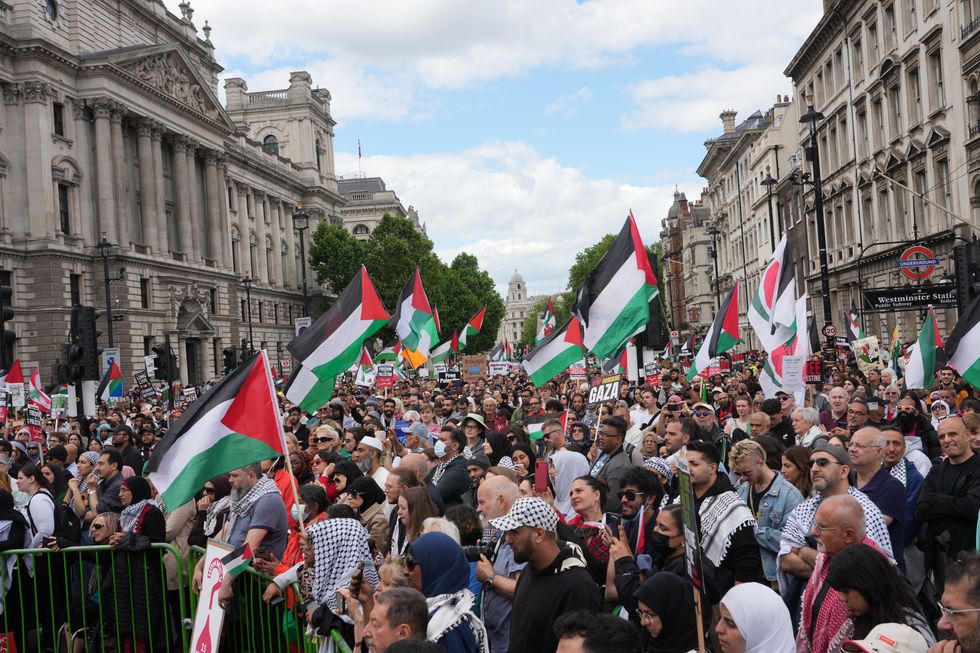
The spokesman continued: “We remain in dialogue with the Metropolitan Police but call on them to immediately abandon their intention to prevent our protest at the BBC.
“We call on all those who are rightly outraged by Israel’s ongoing genocide and those who uphold the democratic right to protest to join us when we march in London on Saturday, January 18.”
More than 46,000 people have been killed in the Gaza war, according to Palestinian health officials.
Much of the enclave has been laid waste and most of the territory’s 2.1 million people have been displaced multiple times and face acute shortages of food and medicine, humanitarian agencies say.
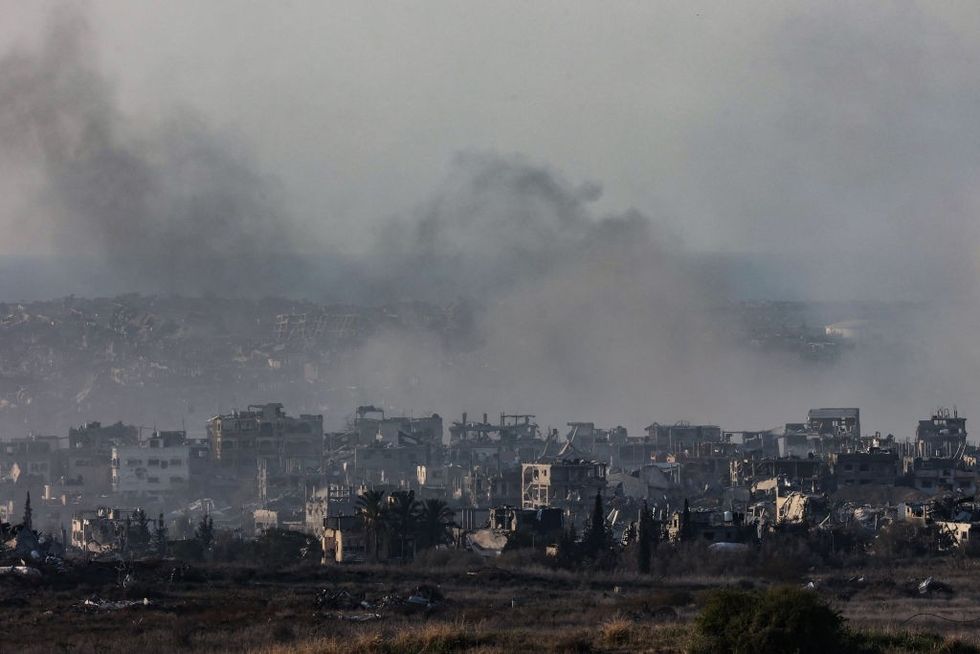
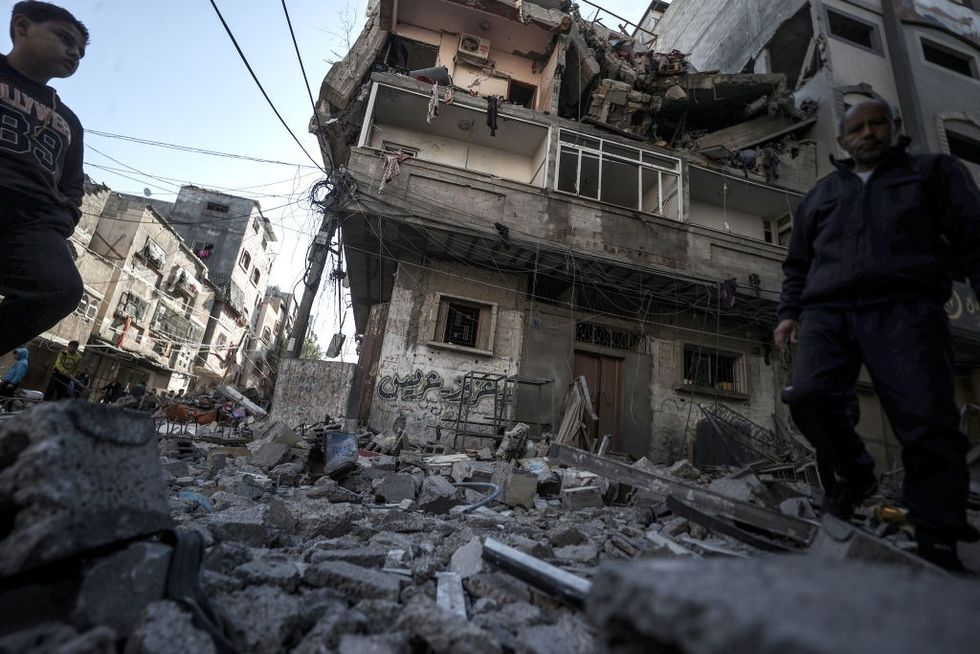
Israel denies hindering humanitarian relief to Gaza and say it has facilitated the distribution of hundreds of truckloads of food, water, medical supplies and shelter equipment to warehouses and shelters over the past week.
The IDF launched its assault on Gaza after Hamas fighters stormed southern Israel on October 7, 2023, killing 1,200 people and capturing more than 250 hostages, according to Israeli tallies.
The death toll from Israel’s military strikes included eight Palestinians killed in a house in Jabalia, the largest of Gaza’s eight historic refugee camps, where Israeli forces have operated for more than three months.
Nine others, including a father and his three children, died in two separate airstrikes on two houses in central Gaza Strip, health officials said.

